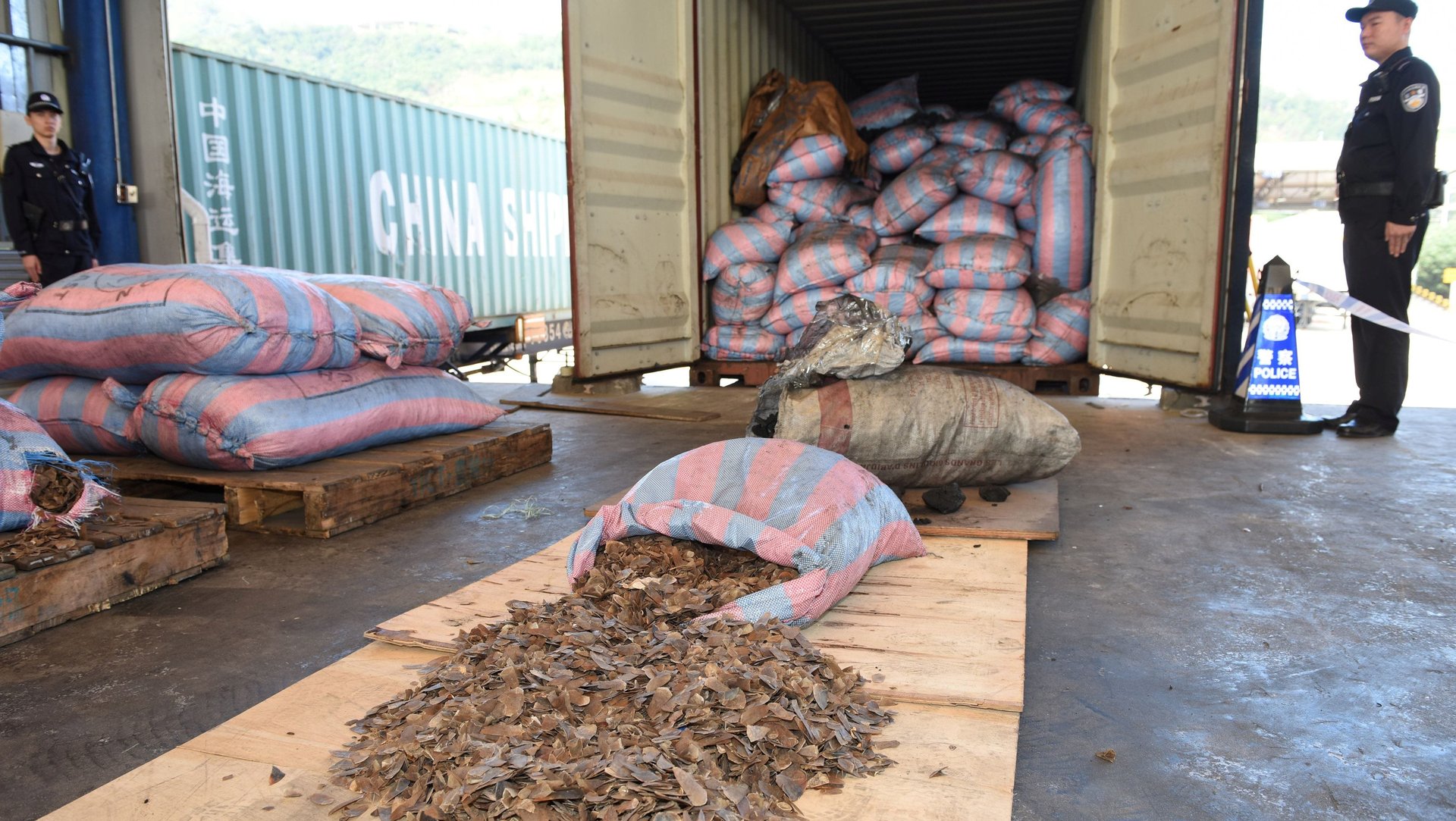China just seized the biggest haul of the world’s most trafficked mammal
Around a year ago, the pine cone-looking pangolin received the highest level of protection against illegal trading by the Convention on International Trade in Endangered Species. While China is supposed to abide by those rules, the country still remains a trafficking hub for the scaly animal.


Around a year ago, the pine cone-looking pangolin received the highest level of protection against illegal trading by the Convention on International Trade in Endangered Species. While China is supposed to abide by those rules, the country still remains a trafficking hub for the scaly animal.
On Wednesday (Nov. 29), customs officials said they seized 11.9 tonnes (13.1 tons) of pangolin scales—the biggest seizure ever—from the port of Shenzhen, which borders Hong Kong, according to state media Xinhua. Officials said that the seized scales could have come from up to 30,000 pangolins. That is nearly four times the last record-breaking case, in which authorities in Shanghai seized 3.1 tonnes (3.4 tons) scales (link in Chinese) from close to 7,000 pangolins.
The pangolin, which curls up into a ball when frightened, is the world’s most trafficked wild mammal. The species is in high demand because it’s believed to treat many ailments and diseases. In traditional Chinese medicine, the scales and blood are thought to help treat rheumatoid arthritis, inflammation, asthma, cancer, and reproductive problems. Those beliefs have driven the species to near extinction, as people relentless hunt for the animal in India, Africa, and Southeast Asia.
China has been stepping up its fines and regulations related to pangolin trafficking in recent years. In 2016, two seafarers, who smuggled pangolins worth nearly 4 million yuan ($605,000), were sentenced to five years of jail time (link in Chinese) and fined 200,000 yuan ($30,248) each.
But the lucrative profits remain too alluring for some.
Shenzhen authorities said they found the pangolin scales hiding in 239 bags with charcoal in a container. They first seized the cargo in early July and had spent four months looking for the suspects before taking two people, surnamed He and Li, into custody, according to Chinese news portal Dayoo (link in Chinese). Li acquired the scales from Africa and shipped them to He, who received the cargo and handled the sales. The two had transaction records of more than 5 million yuan ($756,000), according to the officials.